Co-authored by Emilia Intili and Courtney Gosse
The Social Work Society and School of Social Work hosted their 15th Annual Teach-in via Zoom on November 7, 2021. The event was co-sponsored by the Institute for Global Understanding. The teach-in’s theme was “Quarantine Confessions: How it took a global pandemic to shed light on some of the most pressing societal issues in the United States.” The teach-in was not limited to Social Work students; it was open to anyone interested and available to attend, which resulted in a remarkably successful turnout of local and national students and community members. The virtual conference’s keynote speaker, Senator Vin Gopal, discussed the state of affairs and provided insights on what he has been working on from a policy perspective around COVID-19 and the continued struggles New Jersey faces. The teach-in also consisted of panel discussions on the economic, health, and educational aspects of COVID-19, which were hosted by members of the Social Work Society’s Executive Board.
The Economic Panel consisted of Christina Tello from Affordable Housing Alliance (Neptune, NJ), Paola Marin from Community Affairs & Resources Center (Asbury Park, NJ), and Debbie Keszler from Reformation Food Pantry (West Long Branch, NJ). The moderators of this panel where Olivia Monahan (Vice President) and Jamie Terrone (Co-President). Tello informed participants about the increased risk of homelessness among Americans, amidst COVID-19, due to the increased rate of unemployment. Because of this, Tello called for increased access to affordable housing to reduce homelessness throughout the county. Marin discussed the variety of services that CARC provides for the local community, focusing on the importance of the multilingual and multicultural aspects. Due to the increased immigrant and refugee populations within the community, CARC discussed the issues surrounding the lack of access to these services. Also, due to the pandemic, Kreszler noted that community organizations have encountered more issues as a result of the significant loss of volunteers, which has impacted organizations’ abilities to serve their communities. Overall, this discussion allowed students to become aware of the community resources that are available and the contacts that were able to be made throughout this event.
The Health Panel consisted of Dr. Rose Knapp from Family Urgent Care (Oakhurst, NJ); John Koufos, the National Director of Reentry Initiatives at Right on Crime and the Executive Director of Safe Streets & Second Chances; and Janet Lee from 180 Turning Lives Around. This panel was moderated by Brianna Rudolph (Treasurer) and Brittany Macaluso (Co-President). Regardless of the setting, whether a hospital, prison, or unsafe environment, the speakers stressed the importance of coming together during these times to support and protect each other from the violence and chaos in the world today. The speakers emphasized the need to support one another’s mental and physical health in these challenging times and how self-care should be a priority in everyone’s activities.
The Education Panel consisted of Suzanne Keller from The SOURCE at Red Bank Regional High School, Jenai Bacote (student), Diana Robles (student), and Brittany Dein (student). The moderator of this event was Marissa Henderson (Event Chair). Education has changed dramatically, with the rise of virtual learning, whereby teaching and learning have become challenging and burdensome to all participants involved. Teachers are now required to innovate their lesson plans and students are forced to focus in unusual environments for extended periods. Despite these persistent challenges, both sides are encouraged to come together to help and support each other.
Although most participants have been exhausted with the topic of COVID-19, the event addressed ways in which we can continue to move forward, living our lives while coexisting with the pandemic. It is also important for individuals to continue educating themselves and remain open to learning new things. We are all powerful in what we can do; however, our lifelong learning and adapting can enable us to be powerful in a positive way. Therefore, the call to action for all participants of this event is to consider the information provided and implement new and innovative solutions to the ongoing issues related to COVID-19.

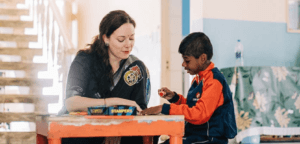
 On November 14, 2020, “One Life to Love” virtually celebrated Diwali, co-sponsored by INDspire Tours, Senator Vin Gopal, and the IGU. The event started with a message from the founder and President Courtney Lalotra, followed by the meaning of Diwali.
On November 14, 2020, “One Life to Love” virtually celebrated Diwali, co-sponsored by INDspire Tours, Senator Vin Gopal, and the IGU. The event started with a message from the founder and President Courtney Lalotra, followed by the meaning of Diwali.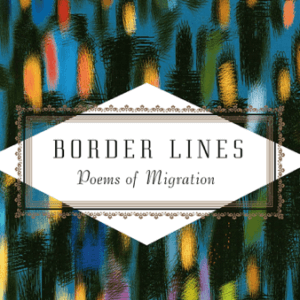 Professor at New York University’s Tisch School of Arts on Sunday, November 15, 2020.
Professor at New York University’s Tisch School of Arts on Sunday, November 15, 2020.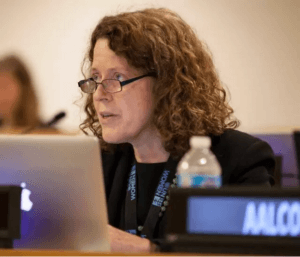 Cymie R. Payne is an associate professor at Rutgers University. She holds a joint appointment in the Department of Human Ecology and at Rutgers Law School. Currently, she is legal advisor to the International Union for Conservation of Nature’s delegation to the intergovernmental conference for a legally binding agreement on conservation and sustainable use of biological diversity in areas beyond national jurisdiction and chair of the IUCN World Commission on Environmental, Ocean, Coasts, and Coral Reefs Specialist Group.
Cymie R. Payne is an associate professor at Rutgers University. She holds a joint appointment in the Department of Human Ecology and at Rutgers Law School. Currently, she is legal advisor to the International Union for Conservation of Nature’s delegation to the intergovernmental conference for a legally binding agreement on conservation and sustainable use of biological diversity in areas beyond national jurisdiction and chair of the IUCN World Commission on Environmental, Ocean, Coasts, and Coral Reefs Specialist Group.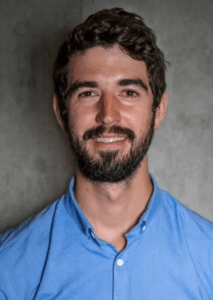 Dr. Guillermo Ortuño Crespo is a marine ecologist with a master of science from the University of St. Andrews in ecosystem-based management of marine systems and a doctorate in marine science and conservation from Duke University. Throughout his postdoc at the Stockholm Resilience Centre he will be working on a novel spatial management study in collaboration with the Inter-American Tropical Tuna Commission (IATTC) to develop the first ever tuna-RFMO dynamic spatial management strategy. He is also a part of the UN Decade of Ocean Science and is facilitating conversation on corporate sustainability.
Dr. Guillermo Ortuño Crespo is a marine ecologist with a master of science from the University of St. Andrews in ecosystem-based management of marine systems and a doctorate in marine science and conservation from Duke University. Throughout his postdoc at the Stockholm Resilience Centre he will be working on a novel spatial management study in collaboration with the Inter-American Tropical Tuna Commission (IATTC) to develop the first ever tuna-RFMO dynamic spatial management strategy. He is also a part of the UN Decade of Ocean Science and is facilitating conversation on corporate sustainability.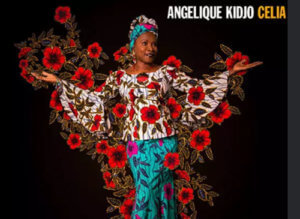 the recipient of the 2020 Grammy Award for World Music. Time Magazine has called her “Africa’s Premier Diva.” Angelique Kidjo is a French-Beninese singer, songwriter, actress, and activist who travels around the world advocating for women and children as a goodwill Ambassador for UNICEF and OXFAM. Kidjo advocates for women entrepreneurs to help close the financial gap in Africa and has created a charitable foundation, Batonga, which supports the education of girls in Africa. She has always respected and idolized Celia Cruz due to Cruz’s proud African roots. Kidjo’s tribute album to the Cuban “queen of salsa,” Celia Cruz, showcases how Kidjo Africanizes Cruz’s Afro-Cuban and Afro-Caribbean style. Kidjo cross-pollinates her West African traditions with Latin American influences such as merengue, rumba, and cha cha cha.
the recipient of the 2020 Grammy Award for World Music. Time Magazine has called her “Africa’s Premier Diva.” Angelique Kidjo is a French-Beninese singer, songwriter, actress, and activist who travels around the world advocating for women and children as a goodwill Ambassador for UNICEF and OXFAM. Kidjo advocates for women entrepreneurs to help close the financial gap in Africa and has created a charitable foundation, Batonga, which supports the education of girls in Africa. She has always respected and idolized Celia Cruz due to Cruz’s proud African roots. Kidjo’s tribute album to the Cuban “queen of salsa,” Celia Cruz, showcases how Kidjo Africanizes Cruz’s Afro-Cuban and Afro-Caribbean style. Kidjo cross-pollinates her West African traditions with Latin American influences such as merengue, rumba, and cha cha cha.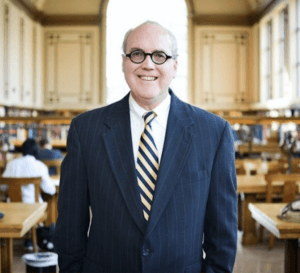 Dr. Wil Burns focused on three major topics: types of climate geoengineering, cutting edge and important initiatives, and international governance of climate geoengineering initiatives. Dr. Wil Burns began by referencing the Paris agreement, which entered into force on 2016 and seeks to hold global temperature increase well below 2 degrees Celsius and preferably at 1.5 degree Celsius. He expresses concerns that temperatures will continue to rise for centuries and such warming could be disastrous to humans as well as ecosystems. If temperatures rise about 3 degrees Celsius it could result in the melting of the Greenland ice sheet, which would raise sea-level by 7 meters. This would also destroy all of the coral reefs in the world, which host approximately 1/3 of all ocean species. These specters of climate change impacts of this magnitude have prompted consideration of potential interventions that could buy humanity more time. These interventions are known as Climate Geoengineering.
Dr. Wil Burns focused on three major topics: types of climate geoengineering, cutting edge and important initiatives, and international governance of climate geoengineering initiatives. Dr. Wil Burns began by referencing the Paris agreement, which entered into force on 2016 and seeks to hold global temperature increase well below 2 degrees Celsius and preferably at 1.5 degree Celsius. He expresses concerns that temperatures will continue to rise for centuries and such warming could be disastrous to humans as well as ecosystems. If temperatures rise about 3 degrees Celsius it could result in the melting of the Greenland ice sheet, which would raise sea-level by 7 meters. This would also destroy all of the coral reefs in the world, which host approximately 1/3 of all ocean species. These specters of climate change impacts of this magnitude have prompted consideration of potential interventions that could buy humanity more time. These interventions are known as Climate Geoengineering.